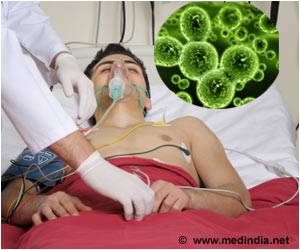Secondary infection occurs when a different infection, known as a primary infection, has made a person more prone to disease.
The test was evaluated by doctors in the intensive care unit (ICU) at St Thomas’ Hospital with 34 ICU patients during the first COVID-19 pandemic wave.
It has shown to identify both bacterial and fungal infections and identify outbreaks with resistant bacteria within 24 hours.
This research can be moved into clinical service for COVID-19 and influenza patients in ICU to demonstrate the full benefit of this technology embedded in an NHS setting.
Currently, doctors take deep samples from critically ill patients in the ICU, from their lungs. These samples are often sent to multiple labs where different bacterial and fungal cultures are set up alongside other complex molecular tests.
Initial results take two to four days to return. During this time the patient often remains on standard antibiotic treatment, some of which may be unnecessary. In other patients, the treatment may be ineffective, as the bacteria have resistance genes to the standard antibiotics.
The new same-day service uses cutting-edge Nanopore DNA sequencing technology to identify all bacterial and fungal pathogens present in patients’ samples, as well as any resistance genes present.
The following day, the same test provides enough genetic sequence to compare pathogen genomes with a database that accurately identifies patients carrying the same strain so outbreaks can be detected at the very start.This is the first time this combined benefit of a single test has been demonstrated.
Gordon Sanghera, CEO of Oxford Nanopore said: “Rapidly characterizing co-infections for precision prescribing is a vital next step for both COVID-19 patients and respiratory disease in general. This year we’ve seen an amazing response from the research community using Oxford Nanopore’s sequencing technology to gain rapid insights into many aspects of COVID-19 from genomic epidemiology to testing and now co-infections. It’s a privilege to see such rapid innovation, huge congratulations to the team”.
It is great to see a new rapid test that can be applied to patient care during the COVID-19 pandemic demonstrating how one test can help answer several clinical questions.
This technology is now in the process of being implemented in one of the best hospitals in the world, to improve patient management and reduce antimicrobial resistance.
Source: Medindia



